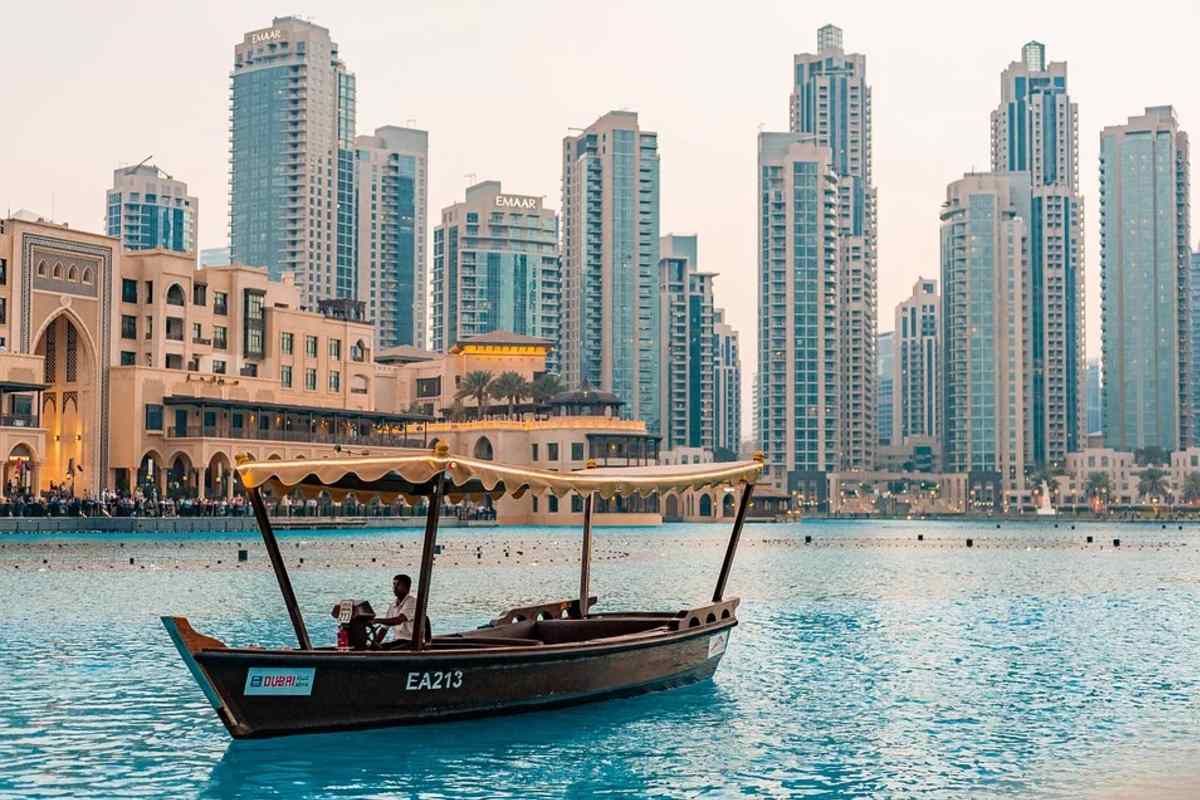Economy
Dubai real GDP projected to grow 3.2% in 2020

Dubai’s real Gross Domestic Product (GDP) is projected to grow 2.1 per cent this year, 3.2 per cent in 2020 and 3.0 per cent in 2021, said the emirate’s Department of Economy on Tuesday. The upcoming Dubai Expo 2020 is also expected to play a major role in promoting growth.
In an official statement, Sheikh Hamdan bin Mohammed bin Rashid Al Maktoum – the Crown Prince of Dubai and Chairman of The Executive Council of Dubai – said that the emirate has emerged as an attractive destination for global investment and hence, helped it transform into a major economy.
#Dubai real GDP projected to grow 2.1% this year, 3.2% in 2020 and 3.0% in 2021 according to @Dubai_DED.
— Dubai Media Office (@DXBMediaOffice) December 10, 2019
“The comprehensive development vision of His Highness Sheikh Mohammed bin Rashid Al Maktoum, Vice President and Prime Minister of the UAE and Ruler of Dubai, has made Dubai an attractive environment for investment and enabled the city to make major economic and developmental strides. This has strengthened Dubai’s global indicators, including in education, health, women’s empowerment and competitiveness” said Sheikh Hamdan.
Read: Second Biggest Arab Economy Falters as Firms See Orders Drop
Dubai’s sector and total growth outlook between 2019-2021 highlights new growth strategies for the future including areas related to “artificial intelligence, the Internet of Things, and the Fourth Industrial Revolution.” It also focus on creating an enabling environment for attracting the private sector to invest in new innovative sectors and expand to regional and global markets.

The short to medium-term outlook for Dubai anticipates challenges and articulates a set of balanced, integrated, and flexible policy initiatives that will accelerate development and ensure sustainability and prosperity in the Emirate. The outlook is in line with the 50-year Charter announced by Sheikh Mohammed bin Rashid Al Maktoum, Vice President and Prime Minister of the UAE and Ruler of Dubai in January 2019. The Charter reaffirmed “Dubai’s fundamental policy principles as a free and open market economy, and a preferred destination for foreign and domestic investments.”
Foreign direct investment (FDI) into Dubai accelerated to AED 38.5 billion in 2018, an increase of 41 per cent from 2017, following the introduction of major policy initiatives which contributed to bolstering domestic demand, reducing the cost of doing business, boosting SME liquidity, and supporting the tourism and real estate sectors.
Read: Dubai clinches top travel & business destination awards for 2019
“These and other initiatives contributed to accelerating growth in the second half of 2018 to 2.2%, up from 1.7% in the first half of 2018, resulting in overall real GDP growth in 2018 of 1.9%,” said Sami Al Qamzi, Director General of Dubai Economy.
“Importantly, GDP growth in 2018 was also supported by growth in productivity, which increased by 2% in 2018 over its 2017 level (Figure 1). This was driven by the quest for business efficiency gains and supported by ongoing efforts to transition into a knowledge-based economy,” he added.
Dubai Productivity Growth
Between 2011 to 2018, the stock of capital or investments net of depreciation, increased by an average of 4.2% per year, reflecting business investments in machinery and equipment, and also the government’s investments in infrastructure making Dubai the 5th ranked city worldwide in terms of its quality of infrastructure, according to the 2018 World Economic Forum Global Competitiveness Report. In 2018, the capital per worker ratio increased by 2.7% over 2017, its highest increase since 2011.

Dubai Capital Stock and Capital per Worker
Human capital, which is measured by the average number of years of schooling weighted by the returns to the different levels of education, also contributed to the increase in labour productivity in Dubai. Figures below shows the index of human capital (with the level in the base year 2006 equal to 100) which, since 2015 has been steadily rising and reached its highest level in 2018, with average schooling equal to 12.2 years, corresponding to an improvement in the quality of labour by 6% compared to the base year 2006.

Read: Dubai, Riyadh lead Middle East in urban mobility revolution

“The impact of government policy initiatives continues to support growth in productivity and business and consumer confidence, stimulating economic expansion in Dubai this year and beyond. This is the case despite the considerable headwinds that the world economy is facing due to rising trade policy tensions and geopolitical risks including uncertainty about Brexit. Unsurprisingly, most international economic organisations, including the World Bank, OECD and International Monetary Fund (IMF) have revised downward their global growth outlooks for 2019 and beyond,” said the Dubai Media Office in a statement.
-

 Banking & Finance2 months ago
Banking & Finance2 months agoOman Oil Marketing Company Concludes Its Annual Health, Safety, Environment, and Quality Week, Reaffirming People and Safety as a Top Priority
-

 News2 months ago
News2 months agoJamal Ahmed Al Harthy Honoured as ‘Pioneer in Youth Empowerment through Education and Sport’ at CSR Summit & Awards 2025
-

 OER Magazines2 months ago
OER Magazines2 months agoOER, December 2025
-

 News2 months ago
News2 months agoAI Security Conference 2025 Hosted by Securado Highlights the Changing Cybersecurity Landscape
-

 Insurance1 month ago
Insurance1 month agoSupporting Community Wellness: Liva Insurance Sponsors Muscat Marathon 2026 with Free Health Checkups
-

 Interviews1 month ago
Interviews1 month agoEXCLUSIVE INTERVIEW: TLS Rebranding Marks Strategic Leap Toward Innovation, Sustainability & Growth
-

 Insurance4 weeks ago
Insurance4 weeks agoLiva Insurance Supports Community Wellness Through “Experience Oman – Muscat Marathon 2026”
-

 Investment2 weeks ago
Investment2 weeks agoLalan Inaugurates Its First Overseas Manufacturing Facility, Marking Sri Lanka’s First Investment in SOHAR Freezone





























